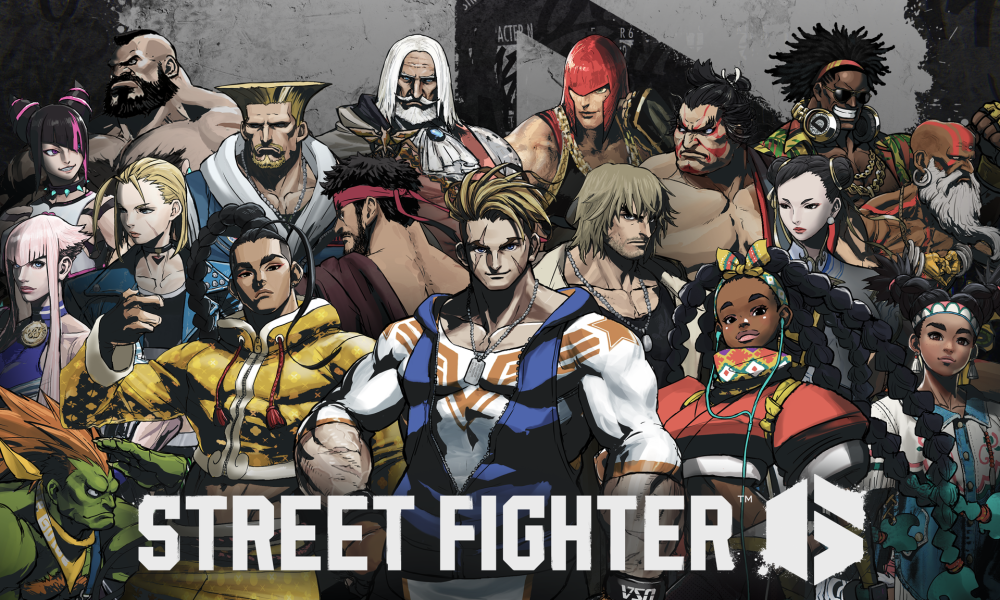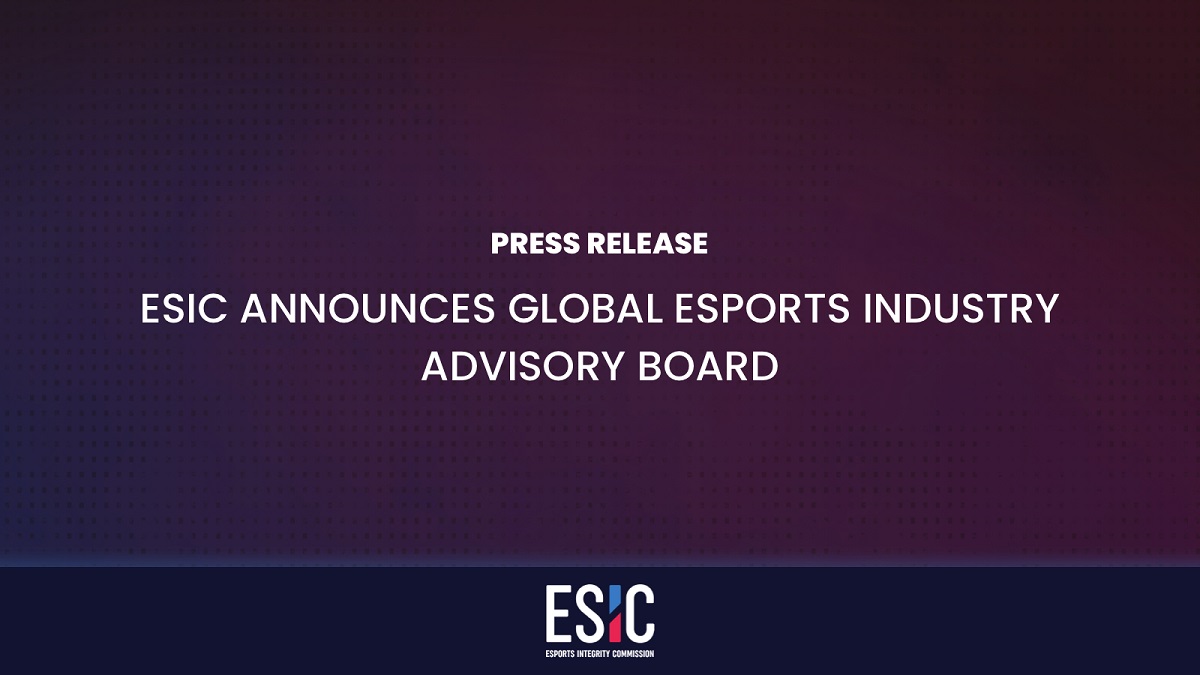

eSports
20 years of HyperX: How Has the Gaming Industry Changed?
Paul Leaman, Vice President EMEA, HyperX provides some insight into just how much the gaming industry has changed in the last 20 years.
Over the last 20 years the gaming industry has changed and grown exponentially. By 2026 it is expected to be worth $321 billion. Besides this financial growth, we’ve seen huge strides in the visual aspect: video games from 8-bit graphics to almost lifelike characters and the introduction of VR. But it isn’t just the look and feel of games that has changed over the last 20 years. The technology we use to game, how we consume our games and who games, have all evolved in ways that few could have predicted in 2002. Here’s a look at some of the most fascinating developments in the gaming industry and what has led us to where we are today.
Evolving tech – the rise of wireless
Rewind 20 years and the PS2 and Xbox were still relatively new consoles to the market, having both launched within two years prior. For those who are not familiar with them, what they will probably find most surprising by today’s standards is that they came with wired controllers. Fast-forward a mere six years and we truly saw the beginning of a new wave of gaming technology – the rise of wireless. Xbox, PS3 and Nintendo Wii, all came with wireless controllers as standard and it would be the start of the modernisation of how people gamed. Wireless became the norm rather than the exception for controllers, headsets, mice, keyboards and chargers. As the technology continues to expand, more users are upgrading to wireless gaming hardware. The wireless gaming headset market alone, is expected to grow by 996.69 million USD during 2020-2024.
For a long time, wired connections led the way for enthusiast gamers. Having a more reliable, stable, physical connection would give you the least amount of lag or delay. However, significant research and development in the modern space has meant this is no longer the case. The ability to deliver to near-zero latency connectivity in wireless hardware has paved the way for its rise. Another important determining factor for gamers switching to wireless is due to aesthetics. Gamers can now create clean and tidy gaming set-ups that seamlessly fit into the design of their room.
Wireless headsets are becoming one of the most popular wireless gaming technologies. They offer freedom to gamers, with no cables to get tangled up in and the ability to move and talk freely. In today’s market most wireless gaming headsets have been designed so gamers spend less time charging and more time gaming in complete comfort with ergonomic designs. The biggest question mark has always been battery life and battery life degradation. However, this year we saw the first headset with up to 300 hours battery life and now gamers even have the option of in-ear buds, perfect for gaming on the move. Which begs the question, what will be possible next?
Gaming as a force for good
As the passion for gaming continues to grow around the world, it is no longer just seen as a hobby, but a thriving industry that is showing no signs of slowing down. Over 439 million people around the world tuned into esports events in 2020. This is a huge development from 2002 when competitive gaming was still very much in its infancy. While there is still a long way to go for gaming to be more inclusive, there have been huge strides taken in the last 20 years.
There is a long way to go to make gaming more inclusive for women and as it should be. However, over the last 20 years the industry has massively changed. There are now dedicated communities for women gamers, such as Sugar Gamers, r/GirlGamers and Women in Games International. These offer female gamers a greater voice and a safer space to make friends, share their experiences and learn more about the industry. We also have more female gaming ambassadors, that are improving women’s representation in games and communities specifically for female gamers. These play their part in facilitating a healthier environment and help pave the way to a brighter future for gaming.
Gaming is a great force for connecting different people, regardless of race, sexuality and gender. Gamers and the gaming industry is misunderstood by many, with typical stereotypes wildly outdated. In reality, the gaming community is over two billion globally and is very diverse and inclusive. For example, in the US alone, 65% of women between the ages of 10 and 65 play mobile games and research shows that 86% of UK parents game. If we think about COVID-19 and the global shutdown that ensued, gaming provided people with a way to stay connected virtually, even when they were physically isolated. Our research also showed that 50% of parents in the UK felt gaming improved their child’s mental health during lockdown and 52% felt their child coped better in lockdown because of gaming. And while we all need to stay on top of our screen time, gaming has a lot of benefits and can teach people values and skills. Multiplayer games foster teamwork and communication, gaming communities nurture belonging, and games can provide people a useful escape in troubling times. It is different for each person but ultimately, gaming has the power to be a force for good.
Online gaming
In the last 20 years, the world of online gaming has burst onto the scene and grown at a mindboggling rate. Since 2007, the online gaming market has continued to grow at a significant rate, with an annual growth rate of over 20% over the last five years. In the last 20 years, esports has gone from a vibrant niche to a central form of entertainment across the globe. Over 439 million people around the world tuned into esports events in 2020 and research from Nielsen found that 82% of global consumers played video games or watched video game content during the peak of the COVID-19 pandemic.
This meteoric rise has led to the opening of arenas such as the HyperX Esports Arena in Las Vegas. A multilevel arena designed to host every form of competitive gaming, the size and standard of the arena is one which historically was associated with traditional professional sports teams. Gaming is no longer just something people do in their spare time at home, it has place in a 30,000 square foot arena. We’re also seeing this level of growth as for many young gamers their idols and the “celebrities” they follow are no longer always in the traditional media. They’re streamers and content creators, such as Tim The Tatman or Valkyrae.
What to expect next
The transformation of the gaming industry over the last 20 years is nothing short of remarkable. The developments of huge online communities, the rise of gamers from all over the globe, from all different backgrounds, the constantly evolving technologies, and the growth of esports and online communities. Like any budding industry, it won’t stop here and it is going to be a fascinating journey. With the rise of new technologies, developing VR even further, completely immersive gaming; the possibilities are endless. And no doubt the next 20 years will be even more exciting.
Angela Bernhard Thomas
CAPCOM’S STREET FIGHTERTM 6 GOING TO COLLEGE THIS FALL

- CSMG will create and operate College Street FighterTM Tour in North America for the 2024-25 academic year
- College conference Street Fighter 6 champions will punch their ticket to the national Collegiate Esports Commissioner’s Cup (CECC) & May Madness in 2025
eSports
R&D rethink needed for sportsbooks to harness esports’ power

 Esports betting is still grappling with a perception problem amongst operators. Despite the leaps and bounds in product development made by suppliers – particularly in the last two years – esports hasn’t shaken off the image built in the late 2010s.
Esports betting is still grappling with a perception problem amongst operators. Despite the leaps and bounds in product development made by suppliers – particularly in the last two years – esports hasn’t shaken off the image built in the late 2010s.
Our good friend, Oliver Niner, Head of Sales at PandaScore, has been kind to share the below article with us.
There’s scepticism around esports betting’s value, how well it can actually perform and what’s needed to make it appeal to bettors. A big part of that comes down to perception, which shapes the research and development (R&D) choices made by each operator.
Self-fulfilling prophecy?
Operators who have put the research and development (R&D) resources into esports are seeing excellent growth, while others are still treating it like part of a long tail. The lack of a uniform approach to esports often translates into hesitancy to be bullish and invest in esports.
Whereas in the United States, post-PASPA sports betting has exploded and operators are seeking to capture as much territory and market share as possible because in most cases, you switch the lights on and the money comes in. It’s, of course, good business sense to take opportunities like this – you can apply the same templates used elsewhere on an incredibly lucrative market.
This kind of approach has been attempted for esports and hasn’t found the same success. Granted, the legislation for betting on esports has been somewhat slower than that of sports betting and iGaming.
However, bullish operators have acknowledged the fact that esports hasn’t found the same success in regulated states and asked what can be done differently, while for others, esports has been thrown into the too-hard basket or relegated to the bargain bucket.
For the latter, the fate of the esports vertical becomes a self-fulfilling prophecy – especially if an operator already using a budget esports product that throttles its very growth.
It takes two to tango
When esports is discussed in broader betting circles, you’ll often hear different versions of the same talking point: the problem with esports is no one is doing it well, it doesn’t innovate.
This argument is a case of the pot calling the kettle black. Esports is a driver of innovation, and it is sportsbook R&D that is holding it back.
Multiple suppliers on the market are investing significant resources into R&D, and bullish operators are leveraging these product innovations to acquire new customers and create engagements made for the internet age.
There are understandable reasons why sports betting doesn’t innovate. It’s largely because operators focus on acquisition, entering new territories and spending money on data rights. But the actual R&D on sportsbook products is left lacking, with ever-increasing cost-per-acquisition (CPA) numbers a clear symptom of this.
It means that if an operator does decide to use or acquire an esports specialist supplier but does little to cater its product and attempts to just lay the sports betting template over the top, of course performance will be throttled.
It’s like putting a Ferrari engine in a Prius – no offence to Toyota or Prius owners.
The same problem exists on the platform supplier front. Platforms are understandably focused on compliance and getting customers live, not necessarily improving models or their products.
Even the idea that if you just acquire an innovative company the problem is solved or you have found the solution, doesn’t hold water. In many cases, the company is acquired and plenty of noise is made about it, but there’s little organisational investment in R&D afterwards.
It’s not just in esports
These problems extend to customer acquisition and marketing for most emerging markets, not just esports. There’s a rush to use the same old playbook in newer sectors because it’s easy.
The fantasy vs. house sector in the US is already experiencing an acquisition arms race. As analyst Dustin Gouker points out, deposit match bonuses for new users on fantasy vs house products have jumped from $100 to as high as $500 in some places.
This is the same race that played out in sports betting and despite the costs, there’s little effort from most operators to try something different. There’s less work when you just put the same acquisition template on an emerging sector and call it a day. This seems to be an accepted practice in the industry, for better or for worse.
Esports betting success requires ongoing dialogue
Rather than attempting to wedge esports into hegemonic sportsbook approaches, sportsbooks need to take a completely unique approach.
The fact is the betting sector has barely scratched the surface – communities of esports fans are still dormant. Canadian operator Rivalry has built a successful, esports-first business by embracing the ever-changing internet culture that esports inhabits. French esports organisation Karmine Corp recently sold out a 30,000-person stadium for an event with no prize money up for grabs.
Innovative products developed on the supplier side like microbetting and betbuilders are only half of the equation.
Maximising esports revenues requires institutional investment, ongoing R&D and collaboration between suppliers and operators to create products and experiences. This includes having staff on the operator side that can drive and push the product further, and crucially, rethinking current sportsbook strategies and practices.
Building experiences for betting’s greatest emerging market – one that caters to your future core audience – takes investment, innovation and a willingness to experiment. If the industry wants to make the most of the Millennial and Gen Z audience that will become its primary customers, investment into R&D and close collaboration between suppliers and operators is needed. Many hands makes light work.
eSports
ESIC Announces Establishment of Global Esports Industry Advisory Board

The Esports Integrity Commission (ESIC) is pleased to announce the establishment of its Global Esports Industry Advisory Board, designed to enhance integrity and ethical practices across the esports landscape. The Advisory Board will serve a pivotal role by providing expert advice to ESIC’s Chief Executive Officer on a range of critical industry issues.
The primary function of the Advisory Board is to create a robust framework for integrity and fairness, setting a global benchmark for ethical conduct and fair competition in esports. The board will offer strategic insights, help shape policies governing fair play, liaise with key industry stakeholders, and act as ambassadors advocating for ethical practices.
ESIC has appointed two highly esteemed members to inaugurate this board:
- David Neichel, Senior Vice President of Public & International Affairs at ESL FACEIT Group (EFG), joins the Advisory Board with over fifteen years of experience in the video games industry, including significant roles at Activision-Blizzard and Electronic Arts. David’s profound impact on international and public affairs initiatives makes him an invaluable addition to the board.
- Robbie Douek, CEO of BLAST, also joins the Advisory Board, bringing a wealth of experience from his roles at Google and Disney, along with his leadership through major acquisitions. Robbie is celebrated for his strategic leadership and his instrumental role in elevating esports to a significant global entertainment platform.
The formation of the Advisory Board is an engagement that underscores the commitment of its members to upholding and promoting the highest standards of integrity within the esports industry. The board will meet as required to address strategic challenges and ensure that ESIC’s initiatives effectively meet current and future industry needs.
“Both David and Robbie bring a remarkable depth of knowledge and a passion for advancing the integrity of esports,” said Stephen Hanna, CEO of ESIC. “Their expertise will be crucial as we navigate the evolving landscape of esports and strive to maintain the integrity that our community expects and deserves.”
Robbie Douek, CEO at BLAST, said: “I’m honoured to be given the opportunity to support the Global Esports Industry Advisory Board and ESIC in their ambition to create the best and fairest environment possible for players, teams and fans.”
David Neichel, Senior Vice President of Public & International Affairs at ESL FACEIT Group (EFG) also commented: “It is a true honour to join the Global Esports Industry Advisory Board and support ESIC’s successful journey. Fairplay and integrity are at the core of esports. We owe it to the players and to the fans and for a better endemic industry governance”
The post ESIC Announces Establishment of Global Esports Industry Advisory Board appeared first on European Gaming Industry News.
-

 gaming2 years ago
gaming2 years agoODIN by 4Players: Immersive, state-of-the-art in-game audio launches into the next generation of gaming
-
EEG iGaming Directory7 years ago
iSoftBet continues to grow with new release Forest Mania
-
News6 years ago
Softbroke collaborates with Asia Live Tech for the expansion of the service line in the igaming market
-
News5 years ago
Super Bowl LIII: NFL Fans Can Bet on the #1 Sportsbook Review Site Betting-Super-Bowl.com, Providing Free Unbiased and Trusted News, Picks and Predictions
-
iGaming Industry6 years ago
Rick Meitzler appointed to the Indian Gaming Magazine Advisory Board for 2018
-
News5 years ago
REVEALED: Top eSports players set to earn $3.2 million in 2019
-
iGaming Industry6 years ago
French Senator raises Loot Boxes to France’s Gambling Regulator
-
News6 years ago
Exclusive Interview with Miklos Handa (Founder of the email marketing solutions, “MailMike.net”), speaker at Vienna International Gaming Expo 2018












